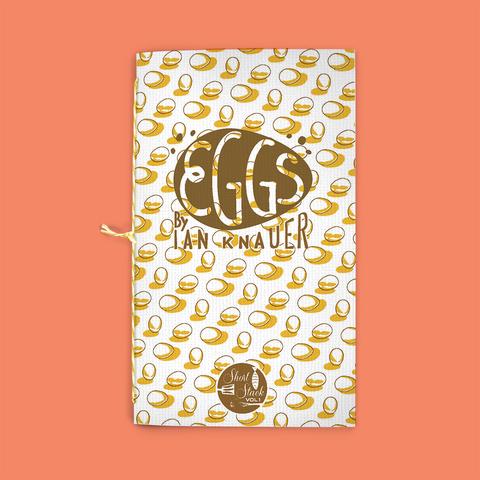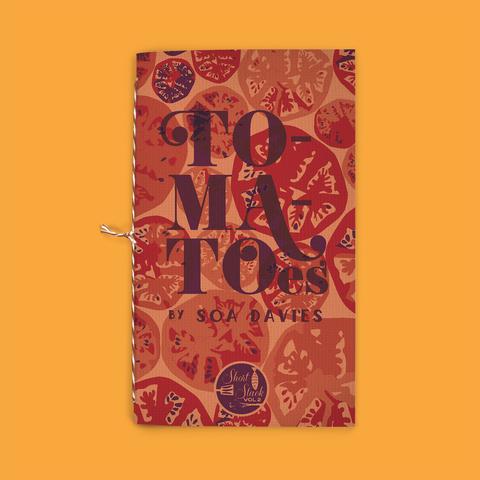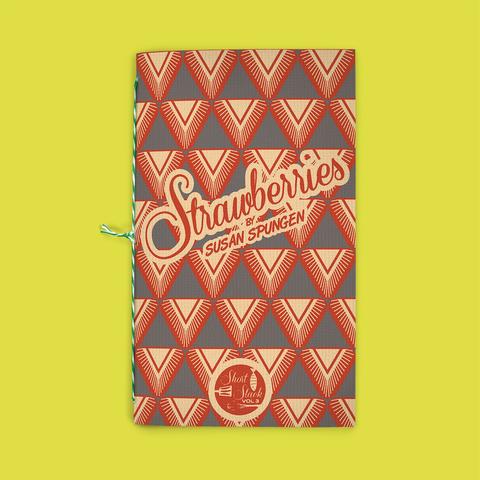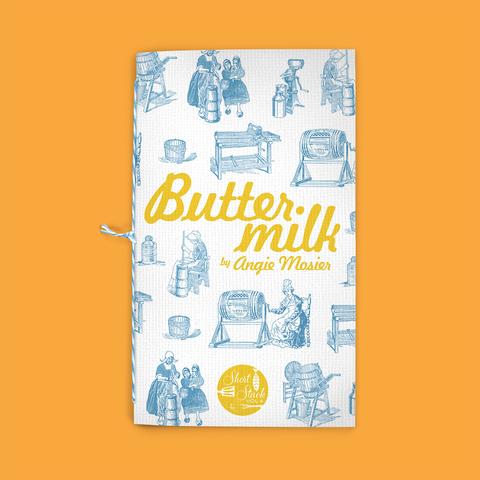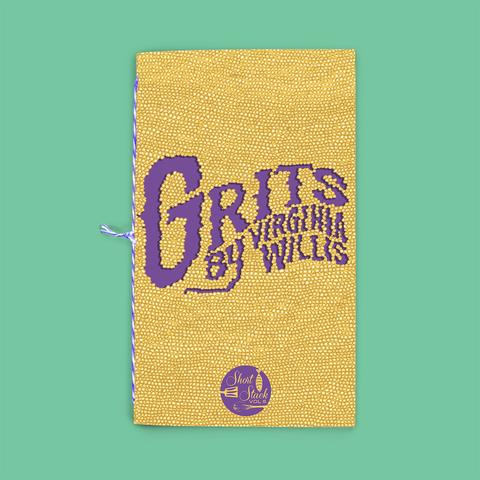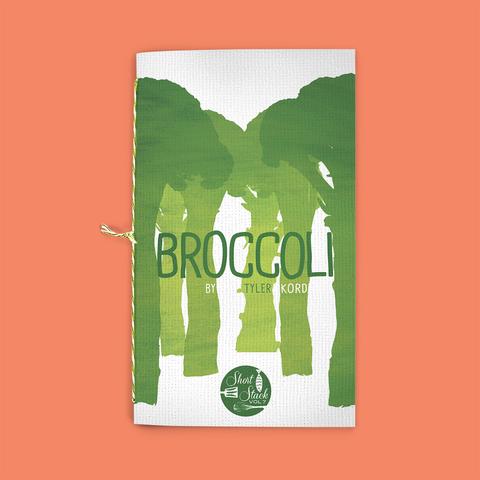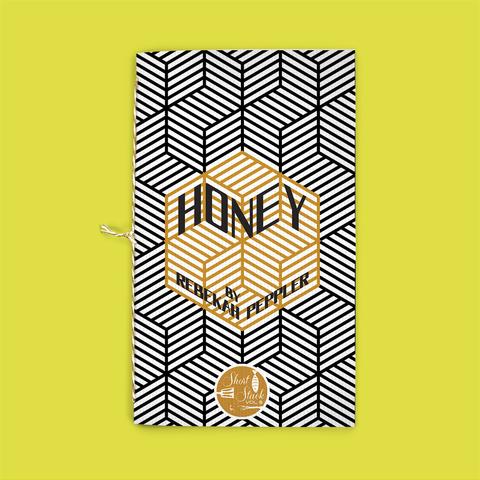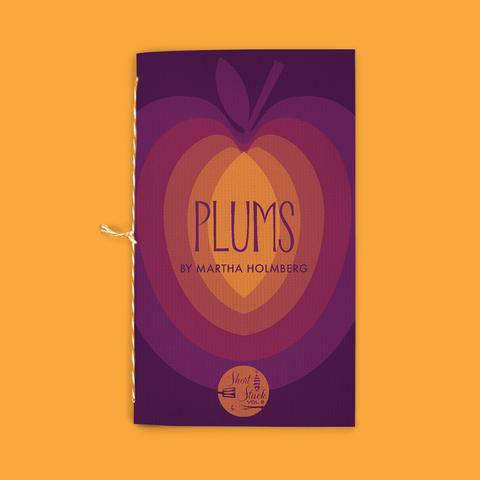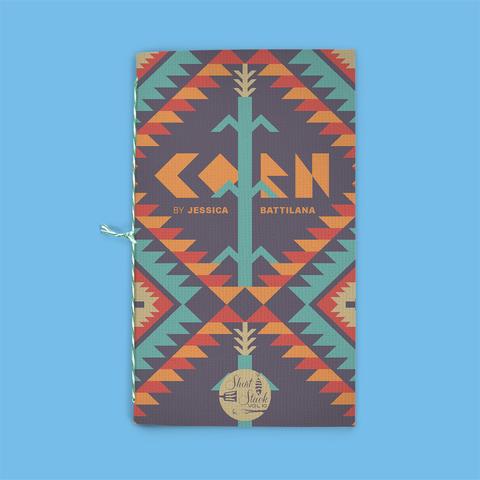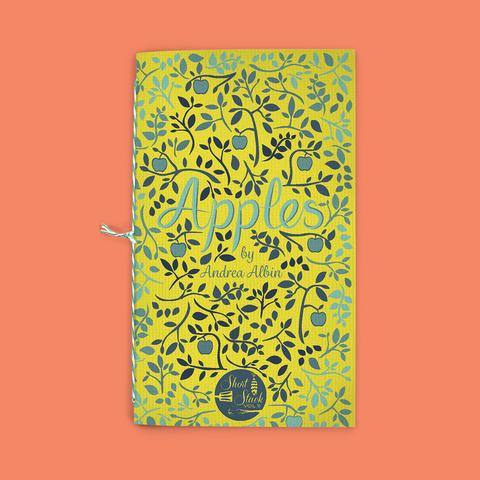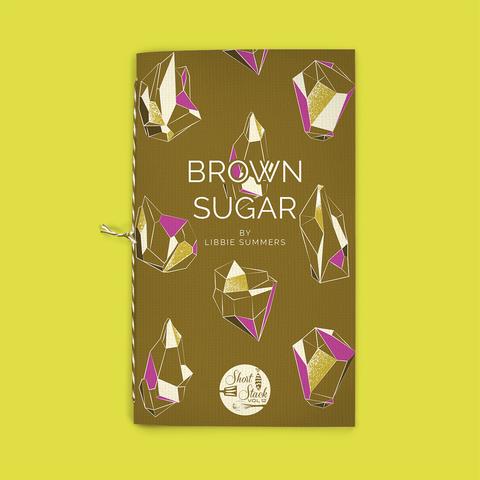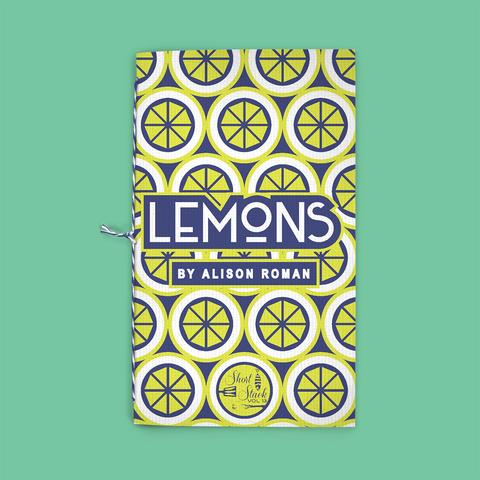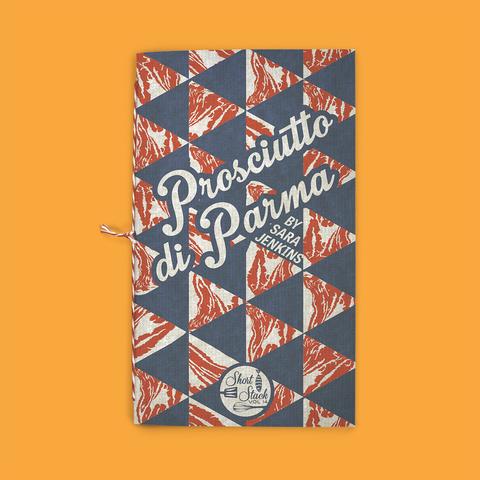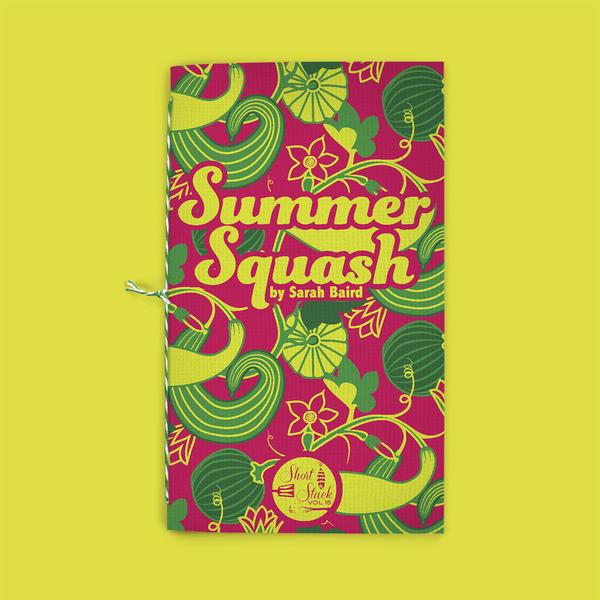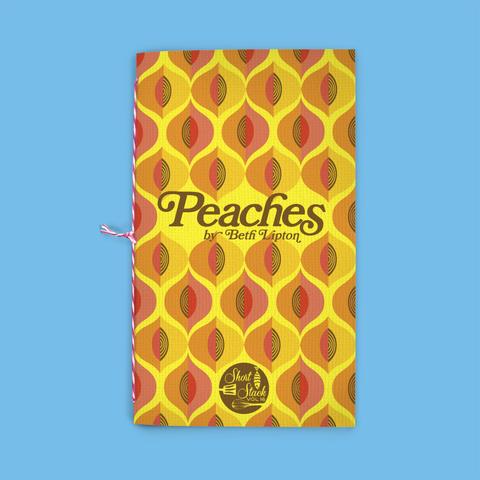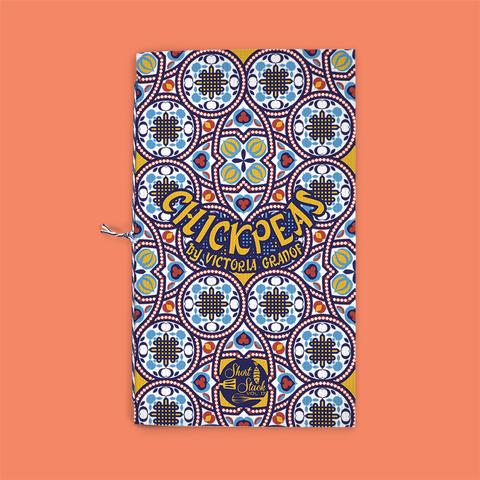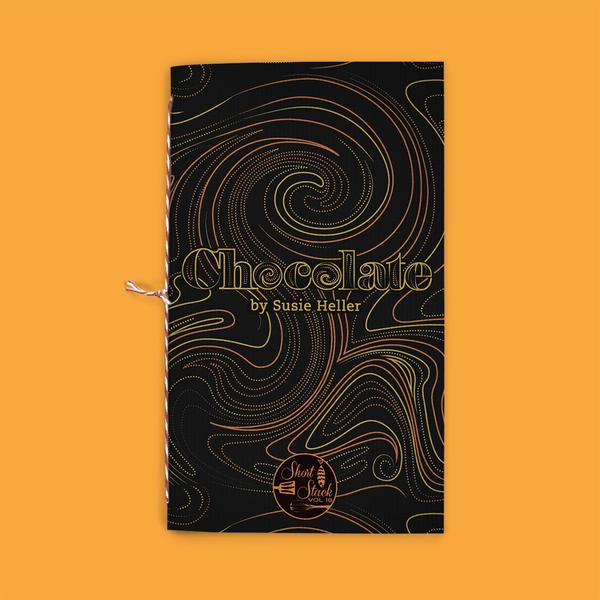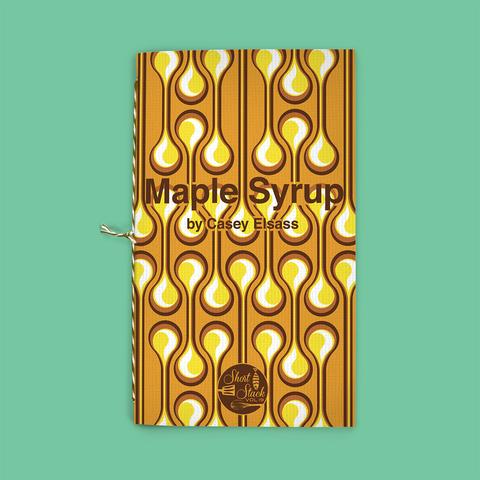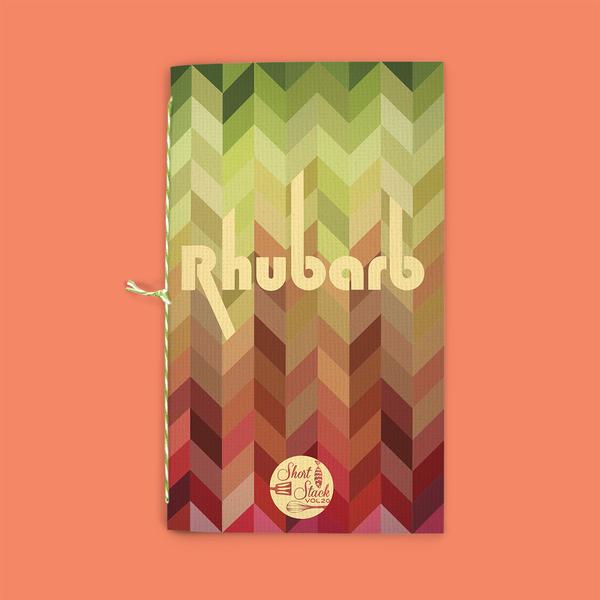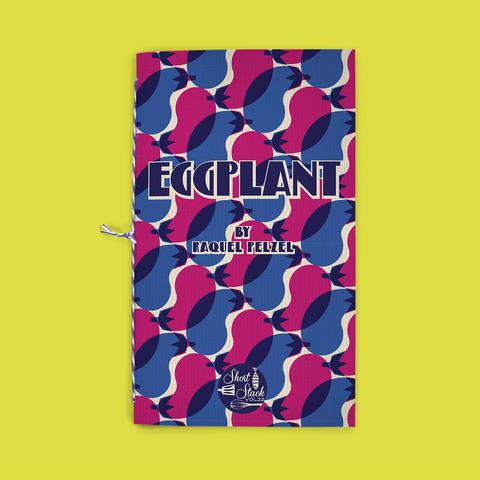SMALL BOOKS, BIG FLAVORS
(photos courtesy of Short Stack Editions)
SHORT STACK EDITIONS
(Brooklyn, NY)
Talking with Nick Fauchald, publisher/co-founder
“We don't/won't/can't compromise on quality, from the recipes our authors create to the design and materials of our books to our customer service.”
AT A GLANCE
Business Start Date: September 2013
Briefly Describe Your Work/Business: Short Stack Editions are a series of small-format cookbooks about inspiring ingredients.
What Are You Best Known For? (What are your most popular items?) We keep all of our editions in perpetual circulation, so they're all our most popular items!
Top 3 Business Statistics or Milestones:
- We funded our launch by raising $92,672 (our goal was $50,000).
- We've published 24 editions to date.
- Our first large-format book, The Short Stack Cookbook, hits stores on October 15, 2016!
What’s Your “Secret Sauce”? (Why/How have you achieved success?): We don't/won't/can't compromise on quality, from the recipes our authors create to the design and materials of our books to our customer service.
Q&A
What event, experience, or collection of events/experiences compelled you to pursue this business?
It was about spring 2013 and I had been working together with Kaitlyn Goalen, first at Tasting Table then independently on apps and digital content, and we found ourselves burned out. It was unfulfilling; we wanted something tangible to show for our efforts. We also had worked in the magazine world and missed print products. And we had worked as authors for trade publishers as had our friends. People were getting paid less and less, and work was drying up. As book authors, we knew what we liked and didn’t like about how people get paid. We wanted to create a better business model for authors.
[We also thought about] home cooks and how cooking had changed. Now seasonal produce is a driving force for home cooks. For example, they go to the green market, get summer squash, and then figure out what to do with it. A lot of people would Google “summer squash recipe.” I knew what kind of risk that was; you don’t know what you’re going to get. Everyone has been burned by a bad web recipe that just didn’t work. We wanted to offer an analog option to that. There wasn’t much media following that approach; if they covered an ingredient, they’d say, “Here’s five recipes.” [It wasn’t enough.]
Did you have any experience starting or running a similar business? Did you do research or training to prepare?
We had worked in magazines and helped start online digital products, but Tasting Table, for example, had investors. Short Stack was funded on Kickstarter.
We didn’t do any training. We talked to a handful of folks for advice. We got a lot of good advice and a lot of bad advice. There was more advice that we listened to that we wished we hadn’t than advice that we didn’t listen to that we wish we had.
No one knows what they’re doing…you may be a better accountant, writer, designer, but for this kind, this size of business, everyone is in the same boat—confused. You need to be stubborn even when [it seems like] you shouldn’t be. If not, then you rely on the success or failure of others and do what other people are doing.
What was your first step toward making the business a reality?
We started thinking: What scope would this thing take? There were tons of magazines that covered food; not many offered stories that started with ingredients. I want more than five ways to use tomatoes. Show me a new approach, a new technique, something I have never seen before.
What was the initial development period like? […and how did you build from there?]
I had been collecting old pamphlets from consumer packaged-goods companies that were ingredient and equipment focused; they came as free gifts with purchase. I got them at the Bonnie Slotnick Cookbooks store [in New York]. Once we had figured out the format, we needed to make sure we had authors/recipe developers whose work we trusted and respected to do the books. The first three people we talked to said yes.
We also had figured out the payment system: Authors would get paid up front based on the number of books we print, which is different than the traditional model, which is usually an advance plus royalties based on book sales. When we started, we guessed at how much to print. We printed the number of books we could afford to print. (Now, we keep books in perpetual circulation.)
Once we found the first three authors and they picked their topics, in May 2013 we put together a Kickstarter campaign. We spent a fair amount of time figuring out how Kickstarter works. Rotem Raffe, the art director for the project, and I built the campaign on a flight from Montana to New York. Literally, we launched it on an airplane. We had originally planned that each book was going to look radically different and done by different authors. But then Rotem said we should keep to a more singular look.
We also had gotten really good advice from [author, editor, and publisher] Will Schwalbe on how to get this to work. (He said to publish three cookbooks at once.) We launched the Kickstarter campaign and got good response from friends and people we knew.
When was the first glimmer that you were on to something?
Three days after we launched the campaign, Kickstarter sent out an email, and in it Short Stack was listed as the Top Pick. That immediately helped fund our project. People discovered us from the email, and we doubled the funding we were looking for. We printed two times as many books as we had planned.
Is the business financially sustainable? Did you have a business plan in place when you started? How has the business developed?
With the Kickstarter campaign, we have been sustainable since we launched. Growth has been steady. We started out as a B-to-C (Business-to-Consumer) business with web sales. We did proactive social media/direct selling at first. Our wholesale business was mostly organic; i.e., retailers reached out to us instead of us being proactive about finding accounts. We shifted that at the beginning of 2015; we have someone whose part-time job is to get new business. It is easier to call stores and sell them your books than it is to find another reader to purchase from you directly. That’s when it flipped. Today, 75% of our sales is wholesale; we’re a B-to-B (Business-to-Business) operation and we’re profitable.
We didn’t have a business plan, but we ran projections and P&Ls. We didn’t start doing accounting until the third year, and we made it an LLC in March 2015. Before that, I had another S corp, and I ran Short Stack through that. The separate LLC has made the accounting easier.
What is the best advice someone has given you?
Will Schwalbe’s telling me to launch with three books instead of one so that would show that we meant business; it gave more context to what we were doing and gave us more product to sell. Also, Rotem’s advice to stick with one art direction, one look—which worked out. [continues]
What has been your company’s best moment so far?
Aside from getting the Kickstarter funding, there was a nice article about us in The New York Times in August 2014 [August 18, 2014]. That prompted the single biggest sales day, both wholesale and direct sales.
What has been your company’s worst moment so far?
Early on, we decided we wanted to use baker’s twine for the binding and bind by hand to show that the cookbooks were handmade. After the first time we had problems binding the cookbooks by hand, we thought we had a better system, but we had to throw away a significant amount of the first print run; too many books were poorly bound or destroyed. We had paid the authors, we had paid the printers, but we had to throw them away. Thankfully, we've since done a better job of training binders (but we may still get rid of this part).
What’s easier than you thought it would be?
Finding really great authors. It was hard to talk people into it at first; it required a leap of faith from our early authors. We hadn't proved to them that we could start a viable business and make them good money. Now it’s easy.
What’s harder than you thought it would be?
I thought it would be much easier to run the business. I didn’t think there would be as many logistical hurdles, like with insurance and accounting.
Is there a quote, mantra, book, or something else that motivates you?
A favorite quote of mine from even before Short Stack, from Julia Child: “A cookbook is only as good as its worst recipe.” Everything you put out should be as dependable, as good, as can be. We’re not a website that can edit based on user feedback. They [the cookbook recipes] better work.
We have an editorial rule: The authors that we choose are the best people on the planet to create recipes. We lean on them to make sure recipes work.
What do you hope to achieve from this point forward?
We’ve got schedules for the cookbooks through 2018. There are dozens of authors waiting in the wings with their subjects.
Our first hardcover, to be published by Abrams, is coming out this October and will be followed by a line of Short-Stack-branded paper goods. Beyond that, we're exploring some other ways to grow the business and extend the brand without compromising our original goals and the quality of the products. There’s a chance we would sell it to keep it going, but we want to retain creative control and know that authors are still being rewarded. We’ve explored partnership offers but nothing that has made sense.
For Kaitlyn, Rotem (now my wife), and me—we’ll continue if we are still having fun with this. We’re not motivated by the money. We look at 1) if it is fun and fulfilling, and 2) if we’re doing a good job by the authors. We’ve been profitable since the Kickstarter campaign. Authors are paid, and we pay employees, but we don’t pay ourselves. Any extra money we get goes back into the business.
Short Stack has never been a job. I worked in publishing before, and I have started a new publishing company, Dovetail Press. My wife works in advertising. Kaitlyn lives in North Carolina, works for a restaurant group, and writes cookbooks.
Short Stack is a hobby that we do outside of our daily careers. It’s a very rewarding side project. It could be my full-time job if I wanted, but it would cease to be fun. If we needed it to provide income, it would mean growing the business more slowly and paying authors and employees less. We’re not looking at it as a long-term company. It is a calling card; it has gotten us other work and has started a lot of other conversations.[]
[The profile was edited for clarity.]



